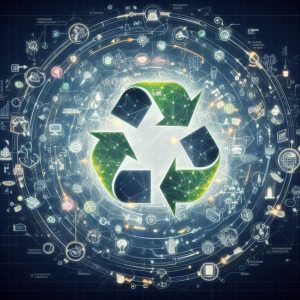Entrepreneurship in the Circular Economy: Benefits and Opportunities
The circular economy is an economic model that offers many interests for both entrepreneurs and consumers. These interests can be found in several areas. Indeed, these benefits can be found in profitability, ecology, or innovation. There are many reasons to get started.
More and more entrepreneurs who want to contribute to the well-being of our blue planet and take advantage of a promising job segment are entering the circular economy sector.
Entrepreneurship in the circular economy sectors can offer several economic, environmental and social benefits. Here are some reasons why more and more entrepreneurs are choosing to enter the circular economy:
- Reduce environmental impact: The circular economy is a model for producing goods and services with limited environmental impact. Companies that adopt circular practices can thus help reduce their environmental impact and contribute to the fight against climate change.
- Ability to meet the needs of environmentally conscious consumers: Many consumers today are looking to minimise their environmental impact through sustainable alternatives. Businesses that rely on the circular economy model are able to meet this growing demand by offering environmentally friendly products and services to their customers. In this way, you will benefit from consumer loyalty.
- Contribution to job creation: The circular model can create new jobs in many sectors such as recycling, construction, reuse, logistics, transport and sustainable product design.
The Include-Ce project, a good illustration of recycling
The Include-CE project is a good illustration of the 3rd point bulleted above. Indeed, with the development of the two training courses targeted to migrants and ethnic minorities, one on Digital Literacy and the second on Active Online Job Search, the element of recycling is embedded in the programmes from the onset, with the second-hand laptop collection, where various stakeholders are requested to donate their unused, but still good digital devices that will be passed to the project’s target groups.
The reader following the project should know that, during the training and after its completion, the target group will themselves be promoting the circular models and inevitably include it in their everyday life.
No sector of activity is excluded, either small or big, as the circular economy principle offers several economic, environmental and social benefits to entrepreneurs. It contributes to the satisfaction of environmentally conscious consumers, it gives an unparalleled sense of pride, it reduces environmental impact, and it contributes to job creation.




